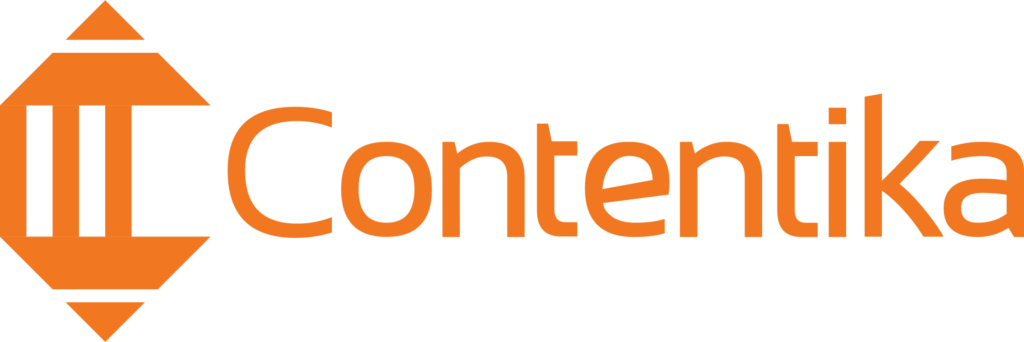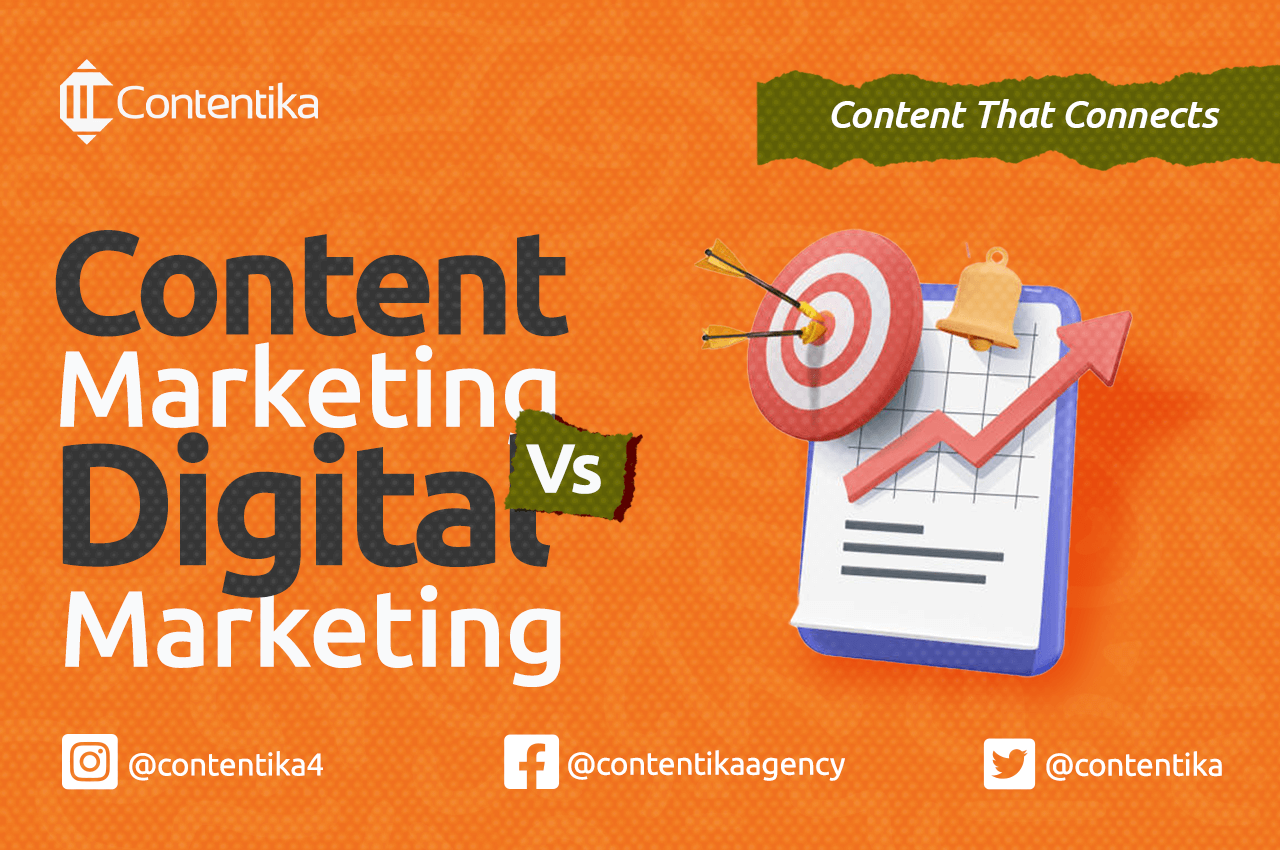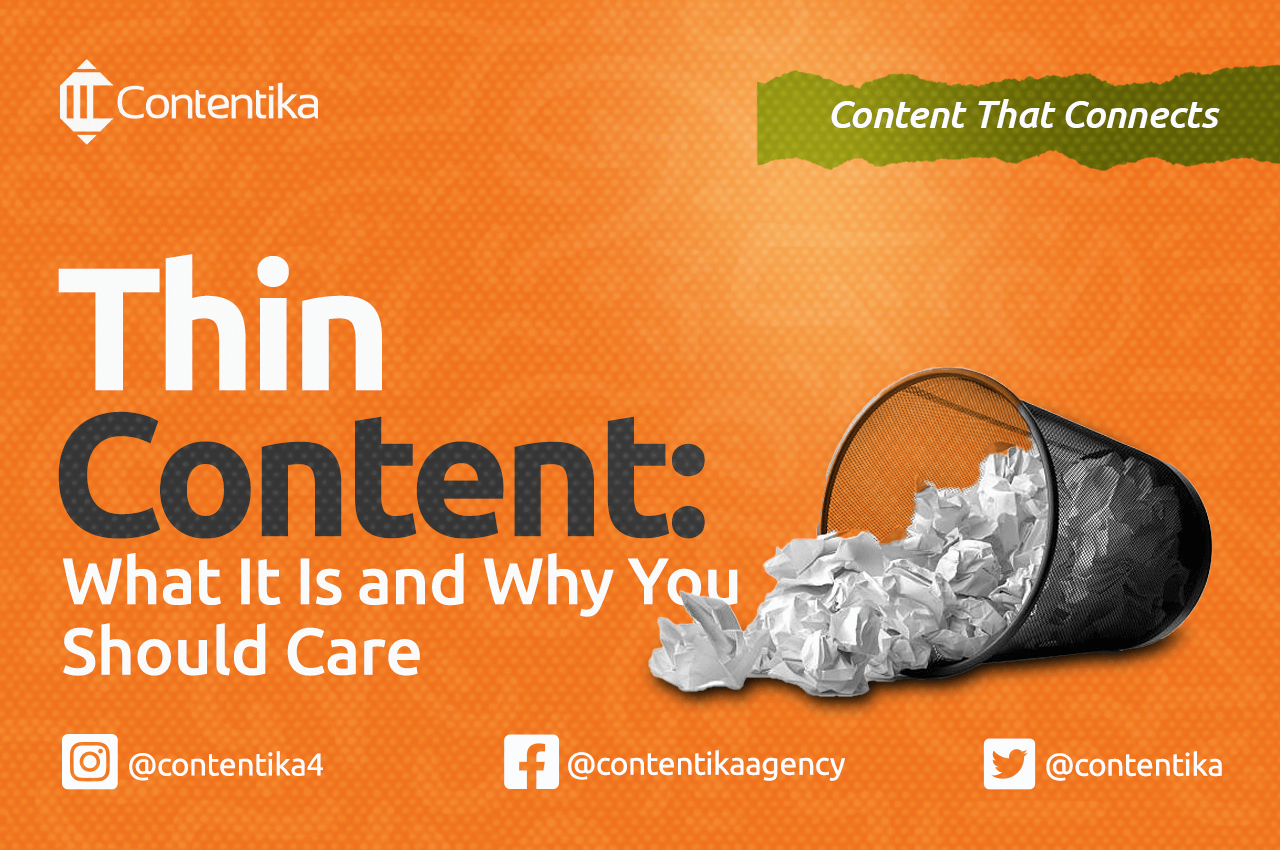As the marketing world progresses, there is an increasing focus on digital channels. However, with the rise of digital marketing, some businesses may wonder if they should continue investing in content marketing. After all, isn’t all marketing going digital?
The answer is no; content marketing and digital marketing are very different. While they both have their place in a broader marketing strategy, it’s essential to understand their differences before deciding which is right for your business.
Content marketing is about creating and distributing valuable, relevant, and consistent content to attract and retain a clearly defined audience, intending to drive profitable customer action.
Digital marketing, on the other hand, is using digital channels to promote or market products and services to consumers and businesses. This can include search engine optimization (SEO), paid search advertising, display advertising, email marketing, social media marketing, and more.
So, which one should you be focusing on for your business? Let’s take a closer look at each one.
What is Content Marketing?
Content marketing is a strategy focused on creating, publishing, and distributing content for a targeted audience online. It is often used with other forms of digital marketing, such as search engine marketing or search engines, which are more effective than traditional advertising.
Content marketing has become an essential strategy for businesses in recent years as the competition for attention online has increased exponentially. With so much noise and clutter online, it can be hard to cut through and notice. That’s where content marketing comes in.
By creating and distributing high-quality, informative, and engaging content, most businesses can attract attention and build an audience of loyal followers. Depending on the business goals, these followers can be converted into customers or clients.
Content marketing is an effective way to reach potential customers and build relationships with them. It can also build brand awareness and create an audience for promoting products or services.
Benefits of Content Marketing
Content marketing is an integral part of any digital marketing strategy. By creating and distributing content, businesses can attract and engage potential customers more effectively than through different techniques.
Some of the benefits of content marketing include:
Improves Brand Awareness and Visibility
One of the main benefits of content marketing is that it helps improve brand awareness and visibility. Creating and sharing content can attract more attention to your business, products, or services. This can ultimately lead to increased sales and profits.
Generates Leads and Sales
Content marketing can also be used in developing leads and sales. By providing valuable information to potential customers, you (or your marketing team) can encourage them to take action, such as making a purchase or signing up for a newsletter. Additionally, by building trust and relationships with your audience, you can increase the likelihood that they will do business with you.
Creates an Emotional Connection with Customers
People are more likely to do business with companies they feel connected to. Content marketing can help create this emotional connection by sharing stories through social media posts or blog posts and building an engaging brand personality. Customers who feel like they know and love your brand are likelier to be loyal.
Builds Trust and credibility
Customers are more likely to do business with companies that they trust. Content marketing can help build trust by providing accurate and valuable information through blog posts. Additionally, testimonials and customer reviews can help build trust and credibility.
Helps You Stand Out from the Competition
In today’s competitive marketplace, it’s crucial to stand out from the crowd is vital. Content marketing can help show customers why your brand is different and better. Creating unique and exciting content lets you grab attention and stand out from the rest of the pack.
What is Digital Marketing?
Digital marketing is the process of using electronic channels to promote or market products and services. These electronic channels include email, social media, websites, and mobile apps.
It uses a variety of marketing strategies to reach a market audience through the use of digital technologies. It includes paid search advertising, search engine optimization (SEO), social media, and email marketing.
It is an integral part of any business’s overall marketing strategy. It can reach a wide range of customers at a lower cost than traditional marketing methods.
Digital marketing is a tool that businesses can use to reach out to potential and current customers. However, it’s important to note that digital marketing is not a silver bullet. It takes hard work, dedication, and a bit of trial and error to succeed in digital marketing.
Benefits of Digital Marketing Over Traditional Advertising
Digital marketing is an essential part of any business’s overall marketing strategy. It can reach a wide range of customers at a lower cost than traditional marketing methods.
Some of the benefits of digital marketing include:
Greater Reach
With many digital marketing tactics, businesses can communicate with a broader audience more efficiently and at a lower cost than traditional methods.
Improved Engagement
Digital marketing techniques allow you to achieve high engagement with your audience, fostering a better connection with them.
Increased ROI
Digital marketing is often more effective and efficient than traditional marketing techniques, resulting in a higher return on investment.
Higher Conversion Rates
Digital marketing can result in higher conversion rates, allowing you to effectively target your audience and connect with them.
What Is Content Marketing in Digital Marketing?
In digital marketing, content marketing creates and distributes real value content to attract and retain an audience. Content marketing drives profitable customer action by building trust and producing interest in a company’s products or services.
Digital marketing uses electronic devices such as computers, tablets, and phones and digital media such as social media platforms, websites, and email to reach potential and existing customers. It encompasses all marketing efforts that use an electronic device or the internet.
Content marketing in digital marketing can take many forms, including blog posts, infographics, ebooks, whitepapers, webinars, and more. The key is providing valuable content that helps your audience solve a problem or learn something new.
When done correctly, content marketing can help you build trust with your audience, establish your brand as a thought leader, and drive leads and sales. It’s an essential part of any digital marketing strategy.
What Is the Difference Between Content Marketing and Digital Marketing?
Digital marketing is using online channels to promote or market products to customers. On the other hand, content marketing is creating and distributing content designed to attract and engage customers. There are several critical differences between content marketing vs. digital marketing:
Content marketers focus on creating informative, valuable, and compelling content relevant to your audience. Digital marketing encompasses various activities, including paid advertising, search engines, social media marketing, email commerce, and more.
Content marketing requires a strategic approach and an understanding your audience’s needs and wants. With digital marketing, you can be more reactive and respond to changes in the market more quickly.
Content marketing is a long-term strategy designed to build relationships with your consumers and create a positive brand association. Digital marketing, while it can also be used for branding purposes, is more focused on generating leads and sales in the short term.
Content and digital marketing are important tools that should be part of your overall marketing strategy. The best approach is to use both to maximize your reach and improve your results.
What Are the Similarities Between Content Marketing and Digital Marketing?
Content marketing and digital marketing have the same goals. Both involve creating and distributing content to reach and engage new customers or clients. Both also require strategies and tactics to be effective, and both can be used to achieve similar objectives.
The main similarity between content and digital marketing is that both rely on creating and distributing content. This could include blog posts, articles, videos, infographics, or any other material that provides value to the audience.
Both content marketing and digital marketing also require a strategy to be effective. This includes understanding the audience, determining what kind of content will appeal to them, and determining where and how to distribute it.
Tactics are also crucial for both markets. SEO is commonly used to ensure content is visible to those searching online. Other digital tactics include social ads, which can help spread the word about the content creation process.
Content Marketing Strategy
Now that we’ve covered the basics let’s take a closer look at crafting a content marketing strategy.
There are several steps involved in developing a successful content marketing program:
- Define your goals and objectives
- Identify your target audience
- Create buyers personas
- Research your competition
- Determine which channels to use
- Set a budget
- Decide what type of content to create
- Create a content calendar
Let’s take a closer look at each of these steps:
Define Your Goals and Objectives
The first step in any content marketing strategy is to define your goals and objectives. What do you hope to achieve with your content?
Some common goals for content marketing include:
- Increasing brand awareness or visibility
- Improving customer engagement
- Building trust and credibility
- Creating a sense of community
Once you’ve identified your goals, your sales representative must determine how to measure success. This could involve setting up Google Analytics tracking, conversion tracking, or some other metric.
Identify Your Target Audience
The next step is to identify your target audience. Who do you want to reach with your content?
Your audience should be as specific as possible. This means identifying factors such as age, location, gender, interests, and job title. The more specific you can be, the better.
Once you’ve identified your audience, you need to research them. This includes understanding their needs, wants, and pain points. Only then will you be able to create content that appeals to them?
Create Buyers’ Personas
Another critical step in developing this strategy is to create buyer personas. These are fictional characters that represent your ideal buyers or clients.
Creating buyer personas can help you (or your sales team) to understand your audience better. It can also guide what kind of content to start and how to distribute it.
Research Your Competition
It’s also essential to research your competition. What kind of content are they creating? How are they distributing it? What’s working well for them?
You can learn a lot from your competition. But be careful not to copy them too closely. You want to stand out from the crowd, not blend in.
Determine Which Channels to Use
Once you’ve defined your goals, audience, and competition, it’s time to determine which channels to use. Many options are available, including social media, email, paid advertising, and organic search.
The best way to decide which channels to use is to experiment. Try out different channels and see which ones generate the best results.
Set a Budget
The next step is to set a budget. How much are you willing to spend on your content marketing efforts?
Your budget will largely depend on your goals. For example, if you want to increase brand awareness, you may get by with a smaller budget than if you’re trying to generate leads or sales.
Decide What Type of Content to Create
Once you’ve determined your goals, target audience, and channels, it’s time to create content and choose the type. Many options include blog posts, infographics, ebooks, and webinars.
Experimenting is the best way to decide what type of content to create. Try out different types of content and see which ones generate the best results.
Create a Content Calendar
The final step in developing this strategy is to create a content calendar. This will help you to plan and publish your content regularly.
Creating a content calendar doesn’t have to be complicated. You can use a simple spreadsheet or online tools like Google Calendar or Trello.
Digital Marketing Strategy
A digital marketing strategy should start with a clear understanding of the goals and objectives of the campaign. From there, a plan can be developed that outlines the specific tactics that will be used to achieve the desired results.
A digital strategy is not a one-time effort. It should be an ongoing process that is regularly reviewed and adjusted as needed. Some of the critical components of a successful digital marketing strategy are.
Identify Your Target Audience
The first step to successful digital strategies is identifying your audience. Who are you trying for a successful marketing campaign? Identifying your audience will help you to develop a strategy to reach them where they are.
Select the Right Channels
There are many different digital channels available, and it is crucial to select the ones that will be most effective for reaching your audience. Some common digital channels include email, social media, paid advertising, and search engine optimization (SEO).
It is essential to consider how each channel can reach your audience and what message you want to send with each channel.
Develop Engaging Content
Once you have selected the channels, you will use them to reach your audience, and you need to develop exciting content that speaks to their needs and interests. This content should be well-written, visually appealing, and relevant to your audience. It should also be unique and different from the content your competitors produce.
Promote Your Content
After creating content, promoting it through your selected channels is essential. This will help ensure your audience can see and engage with it. There are many ways to promote content, such as through social media ads or SEO.
Measure Your Results
It is essential to measure the results of this campaign to determine what is working and what is not. This data will help you to make adjustments to your strategy as needed. You can track many metrics, such as website traffic, generating leads, sales process, and engagement rates.
Digital marketing is a complex process, but following these basic steps will help you to develop a successful strategy.
Which One Is Right for Your Business?
Content Marketing and Digital Marketing: which way to go? The answer depends on your goals and objectives.
Content marketing is an excellent option to build brand awareness and generate leads. Content marketing focuses on creating and distributing valuable, relevant, and engaging content to attract and retain customer satisfaction.
Digital marketing, on the other hand, is a more holistic approach that includes all aspects of online marketing, from SEO to social media. If you want to increase website traffic and conversions, digital marketing is the way to go.
Content and digital marketing can be practical tools in your marketing arsenal. Determining your goals and objectives is the best way to decide which is right for your business. Once you know what you want to achieve, you can create a broader strategy to help you reach your audience and achieve your desired results.
Frequently Asked Question
Yes, content strategy is a part of digital marketing. It plays a critical role in digital marketing strategies. To create a successful digital marketing campaign, you must start with a solid content strategy.
Content marketing helps digital marketing in several ways. It can promote a brand, increase website traffic, and build customer relationships. Additionally, content marketing can improve search engine optimization (SEO) efforts and social media marketing campaigns.
Content marketing is used by businesses of all sizes, in all industries, and all around the world. Content marketing can effectively achieve your goals, whether you’re a small business owner trying to reach new customers or a large corporation looking to engage with your existing customer base.
Some potential disadvantages to using content marketing as part of your digital marketing strategies. First, it can be time-consuming and expensive to produce high-quality content regularly. Second, if your audience is not engaged with your content, it will be less effective in driving sales or leads.
Finally, if you focus too much on SEO keywords and not enough on creating quality content, your site may be penalized by Google.
The main difference between the two is that social media marketing is focused on building relationships and engaging with potential and current clients. In contrast, digital marketing is focused on driving sales.
Conclusion
Digital and content marketing are two essential tools businesses use today. By correctly understanding how to use these tools, businesses can effectively reach a broad audience and promote their products.
Both tools have the same goal; however, it is essential to remember that digital and content marketing requires a strategic approach to drive traffic to your site. Businesses should carefully plan their campaigns and track their results to ensure they get the most out of their marketing efforts.
Additionally, by tracking the results of their campaigns, businesses can ensure that they are using their marketing budget in the most effective way possible. When used correctly, digital marketing and content marketing are powerful tools that can help businesses achieve their goals.













